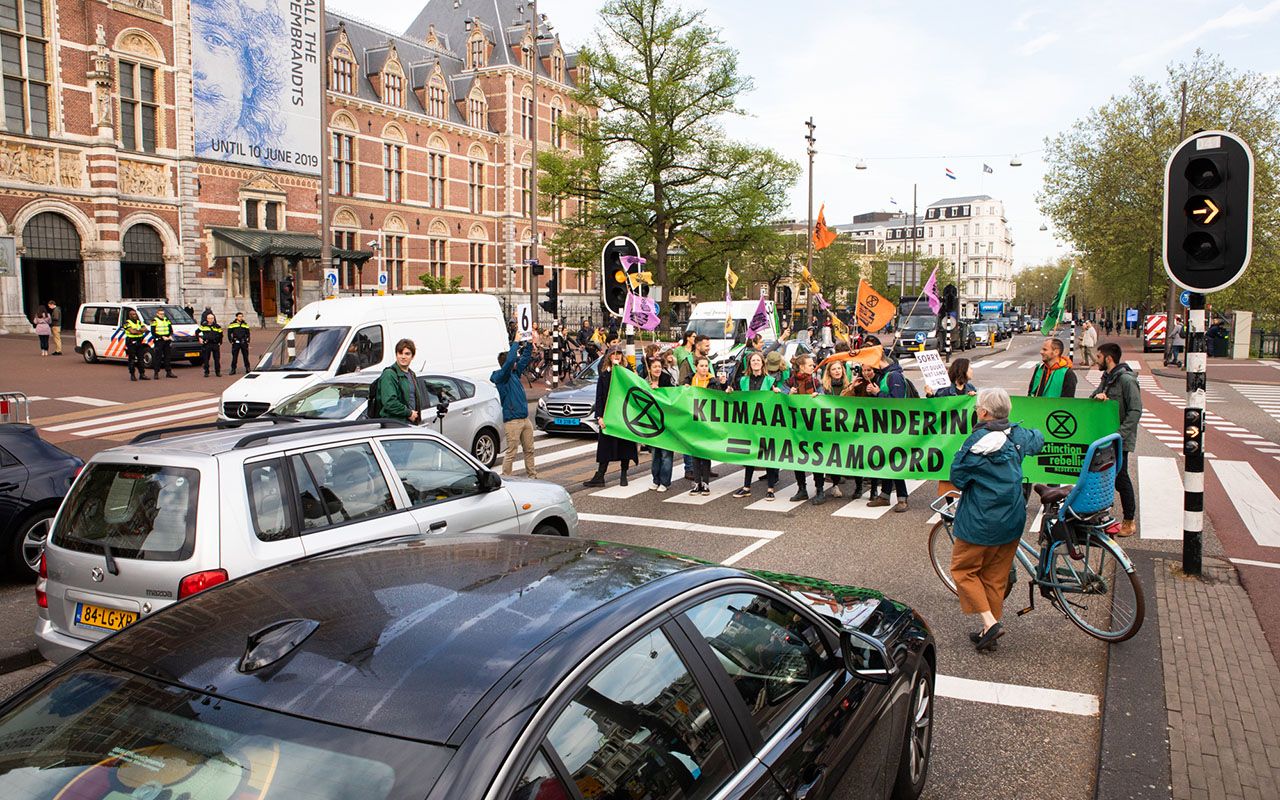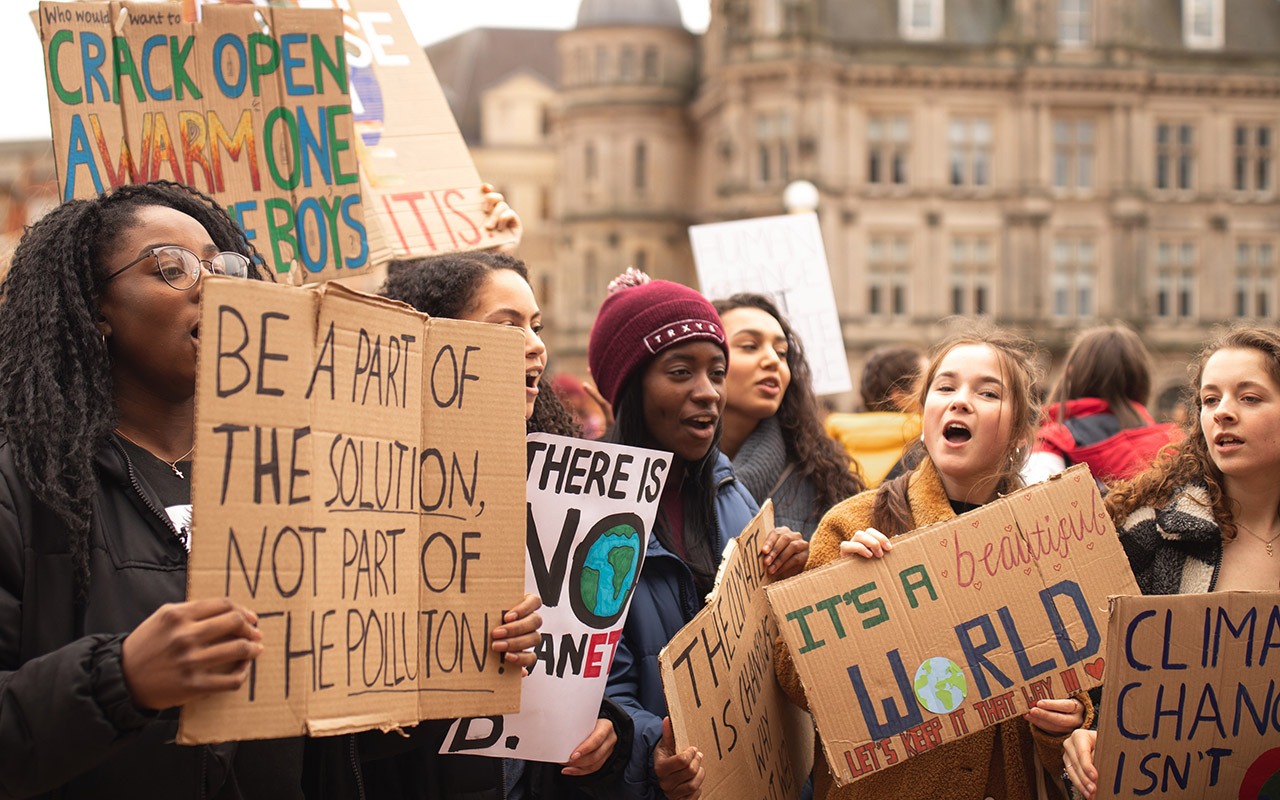The more extreme the environmental movement becomes the less likely they are to win the necessary support, argues The Urban Idiot
It is an unfortunate fact that levels of idiocy rise the more important an issue is, the more passions are raised, the more angry people become, the less dissent that is permitted. Such is the case with the climate emergency where alongside passion and politics there is a fair degree of idiocy.
The greatest idiocy of all, of course comes from those who deny its existence. The climate change deniers alongside anti-vaxxers, flat earthers and just plain contrarians who see climate change as a conspiracy. They fall into many different categories, from the lunatic fringe to the paid-up lobbyists of the fossil fuel industry. However their influence is generally on the wane as they are denied air time on mainstream media and the science becomes something that even the most zealous deniers struggle to dismiss.
The canny amongst them are changing their tactics as Michael Mann, director of the Earth System Science Centre at Pennsylvania State University, described to the Observer last November. Rather than pretend that climate change doesn’t exist, the new deniers stress personal responsibility. All of us have a duty to fly less, drive less polluting cars, insulate our homes, eat less meat, shop responsibility etc. The market will respond to these trends and the world will change. The sub-text being that there is no need for regulation or taxation or any type of government intervention to curb the profits of polluting industries.
The danger of this new line of attack is not its idiocy, but its clever appropriation of its opponent’s arguments. This, after all, is what environmentalists have been saying for years. The Idiot in the past has been criticised for arguing that technology has a role to play in tackling climate change because this is seen as an excuse for not making personal sacrifices. He has debated those who believe passionately that we all have a moral responsibility to live within a global person carbon budget so tight that even travelling on public transport is not possible. He has argued with others when they have suggested that it is reckless to allow the principles of urban design to override a perfect southern orientation.
As with many things that are believed passionately, opinions can become absolutes and people with the temerity to disagree do so at the risk of being cast beyond the pale – “so you are prepared to sacrifice the planet for the sake of your idea of what a street should be”. The problem is that cities as we know them couldn’t survive these absolutes. Many of the things that we love about them, their intensity, energy and their urban spaces would not be possible.
The history of cities is that great damage has been done by such approaches, as The Idiot has written about many times in this column, whether it be highway engineering, zoning or open space. Maybe the decimation of much of what we urbanists hold true would be a price worth paying if it saved the planet? The danger, of course, is that a perfect southern orientation might not be enough!

Climate change has become something of a moral crusade with ‘goodies’, who do all of the right things and ‘baddies’ who carry on flying around the world and driving their SUVs (and building traditional streets). The ‘goodies’ spend their time feeling self-righteous and indignant while the so called ‘baddies’, rather than deny climate change, tend to be people who don’t think too deeply about it, or maybe reason that individual action by themselves won’t make the slightest difference to the problem.
The number of people who are environmentally committed is growing and, for those of us who joined the climate marches last year, we can seem like a majority. But it is an unfortunate reality that we can almost certainly not stop climate change by getting individuals to change the way they live. There will never be enough of us, and our collective decisions will never be sufficient to make a difference.
We need three things to save the planet. Yes, a) we do need to change the way we all live, and b) we need to develop new technologies, and c) we need governments to act. If we manage all three we might just succeed. In this context anger and attempts to shame people for doing the wrong thing risk being counterproductive in bringing about the change we need.
The more extreme the environmental movement becomes the less likely they are to win over the hearts and minds that must be won. The more they shame the frequent flyers and the gas guzzlers the more they will alienate these people and lose their political support. No wonder the climate change denying lobbyists have adopted this tactic. We should instead be building widespread political support for the legislative changes to regulation and taxation that with change behaviour and encourage innovation. The moral high ground is no place from which to save the world.
The Urban Idiot explores brilliant but flawed ideas for our cities






